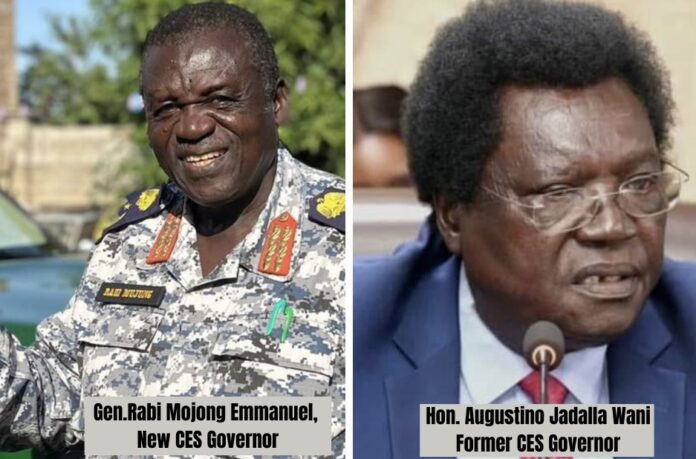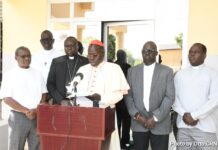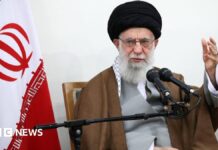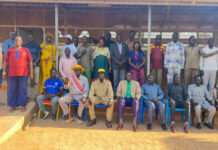
President Salva Kiir Mayardit has appointed Lieutenant General Rabi Mojong Emmanuel as the new Governor of Central Equatoria State, replacing Augustino Jadalla Wani. The announcement was delivered through a presidential decree broadcast on the state-run South Sudan Broadcasting Corporation (SSBC) on Monday evening.
Lt. Gen. Mojong, a veteran officer with decades of military service, most recently held the position of Assistant Chief of Defence Forces for the Air Force in the South Sudan People’s Defence Forces (SSPDF).
The leadership transition comes amid mounting speculation and sensitive political discussions, particularly around a rumored proposal to relocate the state capital of Central Equatoria from Juba to Yei. Although the Office of the President did not publicly state the reason for Governor Jadalla’s removal, the change is being interpreted by some as part of a broader political maneuver tied to the potential relocation plan.
Last week, the former governor’s office dismissed social media rumors linking him to opposition against the alleged relocation, insisting that there is no plan to relocated. The idea of moving the capital to Yei is reportedly being considered to allow Juba to function solely as the national capital, separate from state-level administration.
However, the move has sparked mixed reactions. While some political commentators see the change in leadership as a step toward revitalizing the state government, others remain skeptical, urging continuity in service delivery, peacebuilding, and governance.
Political analyst John Rafa argued that the idea of relocating Central Equatoria’s administrative center is not new. “This is a longstanding proposal that couldn’t be implemented quickly due to logistical and political constraints,” he said. Rafa emphasized that the lack of infrastructure development in Yei, as well as unresolved land issues and overlapping tax authority between national and state governments in Juba, have hindered progress.
“These tax and land disputes have created deeper tensions between national and state administrations,” Rafa added. “I doubt the new governor will be able to resolve these challenges in the short term without clear national policy support.”
The leadership shift comes as President Kiir’s administration continues to stress its commitment to strengthening state institutions, enhancing service delivery, and consolidating peace in line with the 2018 Revitalized Peace Agreement.
As Lt. Gen. Mojong prepares to assume office, citizens and observers alike will be watching closely to see how he addresses both the legacy issues left behind and the new challenges emerging from the state’s shifting political landscape.




